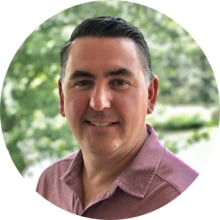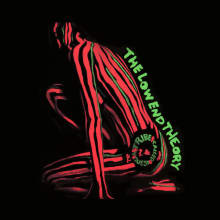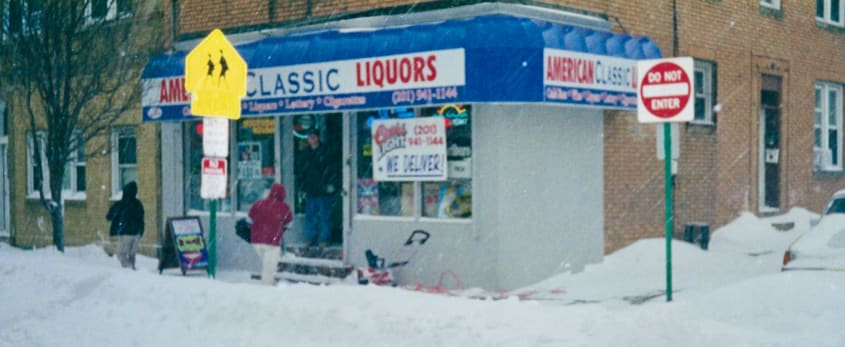 My career started in 1996 as a recording engineer in the music business in New York City. Today I’m Managing Director of Product at a large fintech company leading a team of 30 Product Managers. I live in Atlanta with my wonderful wife and our three children.
My career started in 1996 as a recording engineer in the music business in New York City. Today I’m Managing Director of Product at a large fintech company leading a team of 30 Product Managers. I live in Atlanta with my wonderful wife and our three children.
I apologize in advance for the length of this, but explaining how a dude from the music business made his way to Product Management takes some time. In short, I never planned to get into Product Management or software design, but most people don’t end up where they started right? Here’s how it happened for me.
Like many kids growing up, I was a huge music fan. I think this came mostly from my mother who is a reasonably talented singer/musician herself. I spent hours listening to music, I loved tearing open a new cassette, CD, or LP and reading the credits and liner notes as I listened. In time I became fascinated with how records were made and the people who made them. Growing up in the late 80’s and early 90’s, I was (and still am) a huge fan of Hip-Hop, for whatever reason, it’s always resonated with me. Few people on the planet can beat me at 90’s Hip-Hop trivia; you’ll see why in a minute. I wasn’t a particularly talented musician, but I did have a good ear for sound, and I was good at putting songs and later full albums together.
Growing up in suburban Philadelphia, I followed the New York music scene most closely. By the time I was in high school, I knew the name of almost every engineer, producer, and recording studio in the country. I liked a lot of rap groups, but my favorite by far was A Tribe Called Quest. The Low End Theory to this day is still my favorite album of all time. I learned from the liner notes that the engineer who recorded and mixed most of their albums was a guy named Bob Power. At the time Bob liked to work at a recording studio in Manhattan called Battery Studios.
It was in late in 1991 when I cracked open The Low End Theory cassette and realized I needed to be in the music business, I needed to be a recording engineer, I needed to work at Battery Studios, and I needed to work with Bob Power.
 In 1995, I graduated from high school and moved directly to New York to pursue my dream. After a year of audio school and an internship, I was cleaning toilets at Battery Studios - I MADE IT LOL! It wasn’t long before I heard that Bob was coming in for a session with The Roots. I loved The Roots and was excited that they (and Bob) were coming in for a few weeks to mix the album that became Things Fall Apart. I met Bob in the hallway randomly one afternoon, and I’ll never forget it. It was the first time I’d ever met someone I truly idolized. He was everything I’d hoped: incredibly talented, very nice, and zero ego - not what you’d expect from someone as successful as he. As luck would have it, the assistant engineer that Bob frequently worked with became ill a few days in; Bob asked if I’d like to fill in - Um yes…! I couldn’t believe it.
In 1995, I graduated from high school and moved directly to New York to pursue my dream. After a year of audio school and an internship, I was cleaning toilets at Battery Studios - I MADE IT LOL! It wasn’t long before I heard that Bob was coming in for a session with The Roots. I loved The Roots and was excited that they (and Bob) were coming in for a few weeks to mix the album that became Things Fall Apart. I met Bob in the hallway randomly one afternoon, and I’ll never forget it. It was the first time I’d ever met someone I truly idolized. He was everything I’d hoped: incredibly talented, very nice, and zero ego - not what you’d expect from someone as successful as he. As luck would have it, the assistant engineer that Bob frequently worked with became ill a few days in; Bob asked if I’d like to fill in - Um yes…! I couldn’t believe it.
I got to know Bob over the next few years, and we ended up working on a number of projects together. I was an assistant engineer for several more years at Battery before eventually going freelance. As a freelance engineer, I worked in studios all over the city on many different projects. I was fortunate enough to work on many Platinum selling albums with some well-known artists. My voice even appeared on an album or two. A few of the artists I worked with included: Wu-Tang Clan, Fat Joe, Dave Matthews, The Roots, Eminem, Q-Tip, Big Pun, Method Man, NSYNC, Henry Rollins, Jay-Z, LL Cool J, Kid Rock, Pharrell Williams, Backstreet Boys, Just Blaze, Blues Traveler, DMX, Jeff Buckley, Alicia Keys, and Britney Spears. I have lots of stories, let’s get a beer sometime, I’ll tell you a few.
So what happened? Well, within a 10-year span the music business’s distribution model became disrupted entirely. There was no plan or strategy for life after selling physical media. They never saw digital coming - at all. Digitally copying CDs was the first struggle, then Napster, and piracy was next. Album sales plummeted, artists struggled to sell CDs and eventually, most of the studios ended up closing.
Work was getting increasingly harder to land; it started to feel like it was time to look for something new. I quickly found a new gig doing sound on Saturday Night Live. It was fun for a few months, but after two seasons I decided it wasn’t for me. If I couldn’t make records, my time as a recording engineer was likely over. It was tough, but I decided after six years, it was time for the next thing.
So - I bought a liquor store, I know it seems weird. However, after watching the music business die, I wanted something I controlled, something I owned, something tangible. With a bank loan and some help from my parents, I bought a small liquor store in North Jersey. It was so exciting; most people thought I was nuts, the others were excited by my enthusiasm and energy about it. My single goal was to grow the business in every way I could. I did all kinds of “growth hacks” from a full rebrand to offering a home delivery service.

Looking back, of everything I did to grow the business, building a website was the thing I’m most proud of. It was still the early days of the web and selling wine online in New Jersey had just recently become entirely legal. While it was a very new sales channel, the idea of a wine website wasn’t completely new. I was aware of a store in the town where we lived called the Wine Library, who had a popular website. A father and son team ran this store, the son turned out to be Gary Vaynerchuk.
It was rumored that the Wine Library was doing $50-$60 million per year in sales on the web alone. I’m still not sure if that number is accurate, but I suspect it’s probably close. I thought if I did just 10% of that I was set.
A website was the obvious next thing for me to tackle to continue to grow the business. Unfortunately, I didn’t have the skills to build the site myself, so I hired a customer who made websites as a side business. I paid him a good amount of money and ended up with the typical “50% of a website”. In the end, he couldn’t deliver the entire site, and I couldn’t afford to hire someone else to finish it. I had no choice but to roll up my sleeves, dig in and learn to design and code. I also learned a lot about digital marketing too. I got that site finished, and it went LIVE!
The store was great, but after working 6-7 days a week for a few years, I decided retail wasn’t really for me. I did feel though like the experience I took from it would prove valuable down the road so “it was all good.”
After selling the liquor store and having our first child, I was ready for some regular working hours (and weekends). I can’t say I viewed myself as a sales guy, but I was good at forming relationships, following through and I’ve always been self-motivated. Fedway Associates is one of the largest wine and liquor distributors in New Jersey, so I interviewed with a Division Sales Manager, and he offered me a job on the spot. I was excited, I never really planned to be a wine salesman, but at the time it felt like the right next thing.
The best part of the job was that as I drove all over the state from store-to-store all day, I could listen to podcasts and videos playing on my laptop from the passenger seat. This proved to be huge because I couldn’t get my mind off the web, coding, web design, SEO, or anything web. I loved it - I ate, drank and slept web. It felt like my teenage years with the music all over again. I was studying every podcast and blog I could get my hands on; I was unintentionally becoming an expert.
I started to think “these skills feel like they could be valuable.”
I tried my hand at a few things around the web and ultimately decided I wanted to build websites for businesses to help them acquire new customers. I was still selling wine and liquor as my day job, but I spent nights and weekends designing and coding customer websites. I went door-to-door in my town to get the first few clients. Before I knew it, I had a small business on my hands. I wasn’t getting rich, but I was getting pretty good at building (and selling) projects.
Before long I was looking for a path to build websites full-time, a mutual friend introduced me to someone else who was also looking for something similar. I took the plunge, and partnered with Lou Kotsinins and co-founded BCS Interactive. It was great; we built websites and apps for small to mid-sized businesses and non-profits. Lou is still going strong with it today, but after a few years I was getting a little burnt on it and needed all of the trimmings that come along with a real corporate job. So we amicably parted ways, and I started job hunting.
Luckily the job market was pretty strong. As I thought about what my core skills were, I decided design (specifically app and UI design) were it. I interviewed at lots of companies large and small, mostly in NYC. It was an interesting experience, along the way I discovered that some of that startups and agencies I longtime admired weren’t all that cool in the end.
Eventually, I came across a job posting for a UI design gig at a large New York-based fintech. I went on the interview and was offered a job as a Senior Designer on the design team. I had no Financial Services industry experience, but I did have a solid portfolio and the Creative Director, and I hit it off in the interview. That was it - I was hired, before I knew it I was knee deep in some awesome projects.
I had the opportunity to work on fun marketing projects, Super Bowl ads and lots of UI design. Exposed to all of the parts of a real company, UI, and app design was still the thing I loved doing. I especially enjoyed building something big from beginning to end; it reminded me of making records. UI design eventually turned into running a UX prototyping team. Prototyping eventually turned into owning a product. So there it was… holy moly I’m in Product Management. I was just some dude off the street who started in the music business, next time I looked up I was VP of Product Management. I was as surprised as anyone. In truth, though I knew I had been working nights and weekends for years, it felt like an overnight success, but it wasn’t.
I live in Atlanta, Georgia. I’m Managing Director of Product at a large fintech company. Our platform is used by many of the largest companies in the world to manage their equity compensation benefit programs. I lead a fantastic team of 80 Product Managers and report to the President of the business. I manage the roadmap, enhancement prioritization, and overall product strategy and direction while also playing an active role in other areas including Sales, Relationship Management, and Customer Service.
Thanks for stopping by, I’d like to hear from you. Feel free to send me a note, or let’s connect on Twitter or LinkedIn.